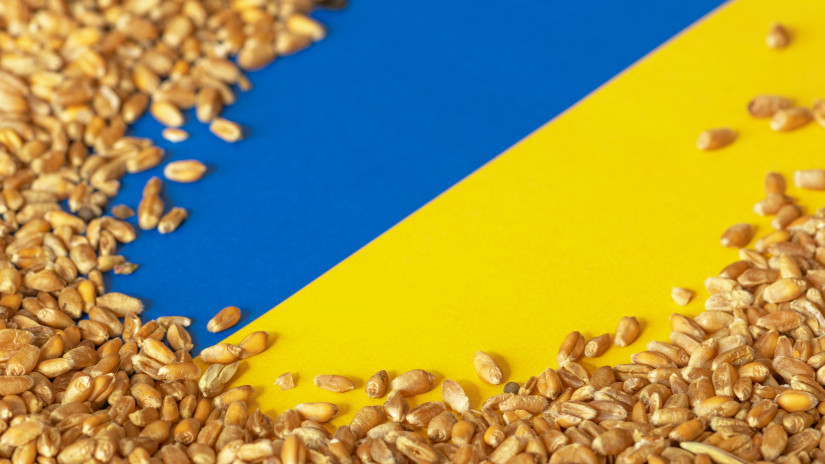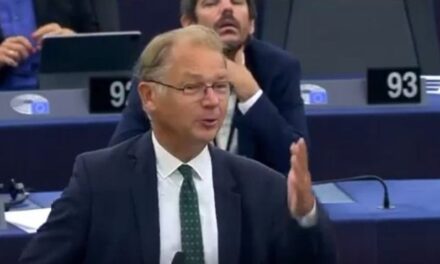Poland is blocking an agreement between the EU and an organization of 76 African and Caribbean countries that would facilitate the return of asylum seekers to Africa.
Poland is the last obstacle to the so-called post-Cotonou agreement concluded with the 79 countries of the Organization of African, Caribbean and Pacific States (ACP). The agreement is an update of a 20-year-old treaty that supplements the pact with measures related to human rights and immigration, including the ability for ACP countries to take back migrants whose asylum applications have been rejected in the EU, Reuters reports.
Our country initially opposed the agreement, claiming that it could violate the sovereignty of education and that it contains elements of gender ideology.
But he signed it in April after receiving assurances that the treaty would not infringe on the nation's sovereign control over education, sexual rights and labor market regulation.
According to Politico, Poland is using the post-Cotonou deal as a tool to get more support from Brussels to deal with an oversupply of Ukrainian agricultural products stuck in Poland. According to the news portal, several diplomats stated that
In exchange for signing the Afro-Caribbean treaty, Poland wants the EU to buy its grain and any surplus from Ukraine and send it to Africa and other countries.
Among the Eastern European countries, Poland was particularly generous in terms of direct aid to Ukraine, including being the first to send fighter jets, but also due to the flow of Ukrainian wheat, corn and oilseeds to the EU, which was facilitated by Brussels and the Polish government. The reaction is therefore both economic and political.
In May 2022, four months after the Russian invasion of Ukraine, around the time Brussels lifted import restrictions on Ukrainian products and created so-called solidarity corridors to facilitate exports of grain and oilseeds from Ukraine, Warsaw reached an agreement with Kyiv to implement joint border customs checks. are carried out to increase the traffic of people and goods across the Polish-Ukrainian border.
"The Polish-Ukrainian border should unite, not divide," Polish President Andrzej Duda said in a speech to the Ukrainian parliament, becoming the first foreign leader to speak in person in Kiev since the Russian invasion began on February 24, 2022.
The border protection policy and the temporary lifting of tariffs have helped millions of tons of Ukrainian grain and oilseeds arrive in Europe, much of which, according to Politico, has been stored by Polish traders, waiting for the right time to sell.
However, Polish farmers began protesting this spring when they realized that the influx of Ukrainian grain had depressed prices.
This was an unexpected political blow for the Law and Justice party, which is facing tough elections this year. Polish Agriculture Minister Henryk Kowalczyk resigned in April, partly because of the grain situation.
After unilaterally blocking Ukrainian agricultural imports (with the exception of Romania, which took other measures), Poland and four other countries – Hungary, Slovakia, Bulgaria and Romania – which were also affected by the influx of Ukrainian imports, reached an agreement with the European Commission that the five countries it will only function as a transit country along the so-called solidarity corridors. In principle, this means that Ukrainian grain and oilseeds cannot enter their own markets, but can only pass through to flow freely to the rest of the EU. In addition, the Commission promised an additional EUR 100 million in compensation to agricultural producers, as well as unspecified support for the logistics of onward transportation of Ukrainian grain to the EU.
Reuters reports that Ukraine shipped 8.4 million tons of wheat between July and December 2022, down 47 percent from the same period a year earlier, according to recently released data from the U.S. Department of Agriculture. About half of the 2022 volume went to EU member states, compared to 2 percent measured in the same period of 2021. Half of the wheat arriving in the EU landed in Romania, Poland, Hungary or Slovakia.
Romania received and moved the largest amount of Ukrainian grain, as the port of Constanta was the best alternative for Ukrainian shipments. According to a Reuters report, citing Comvex data, Constanta has handled nearly a third of Ukraine's grain exports since the Russian invasion, shipping 8.6 million tons in 2022 and 3.3 million tons in the first quarter of 2023. Although the USDA data does not track re-exports, the agency mentioned to Reuters that most of the incoming products may have been transported through Romania.
At the same time, the shipments of other destination countries, which are typically importers of Ukrainian grain, namely Africa and Asia, decreased significantly. In 2021, Africa absorbed 34 percent of Ukrainian exports, but in 2022 shipments decreased by 80 percent, reports Reuters. Shipments to all Asian destinations also fell by more than 80 percent.
According to Politico, other countries have accused Warsaw of "hijacking" the post-Cotonou agreement to squeeze the EU over Ukrainian imports and Polish farmers.
Featured image: Getty Images












